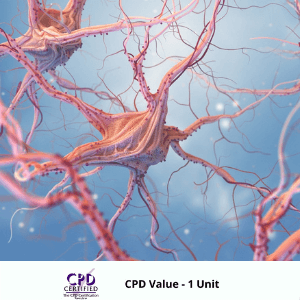Epilepsy Awareness
Epilepsy is a neurological condition that affects the brain and the nervous system. Someone who has repeated seizures has epilepsy. It is a common condition that affects around one out of 100 people in the UK. That is over half a million people. The condition is covered by the Equality Act 2010. It’s a condition that can affect anyone regardless of sex, race or social class. It can start at any age, but it’s most common in children and people over 65. The high prevalence of the condition give a good reason why epilepsy awareness training, and the ability to recognise the triggers and symptoms of epilepsy is so useful.
When introducing epilepsy, we must first recognise that there are around 40 different types of seizures, and a person can have more than one type. Statistics show that one in five people will have a seizure at some time in their life, although not all of these will be caused by epilepsy.
This course will give you an overview of epilepsy
- It lists the methods of diagnosis, what a seizure is and how the brain is affected.
- It will introduce some possible seizure triggers and symptoms of epilepsy, and describe what to do when someone has a seizure.
- It looks at some of the treatments available to those with epilepsy
Who is this course for?
This epilepsy awareness training is intended for support workers and those working in the care sector. It is also a useful training for anyone who wants to understand more about the different forms and symptoms of epilepsy along with it’s diagnosis and treatment.
Types of Epilepsy
This awareness training will take you through the most common forms of epilepsy. There are numerous types of seizures. Some are subtle and hard to see while others are more obvious. Not everyone will lose consciousness, and some can produce unusual behaviours. Epilepsy can be put into two categories:
- partial seizures and
- generalised seizures,
Partial seizures, also be called focal seizures, are when abnormal electrical activity occur and only part of the brain. These can be further broken down into simple “partial seizures”, which don’t affect awareness or memory and “complex partial seizures”, which do affect awareness or memory of events that occur before, during or immediately after the seizure.
Generalised seizures occur when abnormal electrical activity affects the whole brain. There are a number of types of generalised seizures which are examined at length in this awareness training.
Actions to take when someone has a seizure
The training gives direction on the procedure that should be taken in the event that someone has a seizure. It will give you the confidence to take control of the situation and ensure the person having the seizure remains safe. Some seizures are brief and most pass without intervention, but some may require basic first aid, and in some cases the person may require emergency medical attention. In all cases, reassurance and appropriate support are always helpful.
Normally seizures are short and end of their own accord, and people don’t have to go to hospital. However, there are some where the expertise of the emergency services are required. This training will put you in a position to know when the emergency services should be contacted.
For more information on epilepsy, go to NHS, epilepsy overview
| Course Content | Module |
| What is epilepsy? | 1 |
| Types of seizure | 2 |
| What to do | 3 |
Online assessment for this epilepsy awareness course is carried out by a series of multiple choice questions. Candidates require 70% correct answers to secure a pass. PDF certificate will be sent directly to your inbox. Hard copy certificates are available on request. Duration: 30 minutes (Note: This is based on the amount of video content shown and is rounded off. It does not account in any way for loading time or thinking time on the questions).
Other related courses to Epilepsy Awareness Training Course include
Diabetes Awareness
Stroke Awareness



